Pepper companion planting – the best plants to grow with peppers for an abundant harvest
Learn the best pepper companion planting combinations to ensure a bumper crop of delicious home grown peppers

Rachel Crow
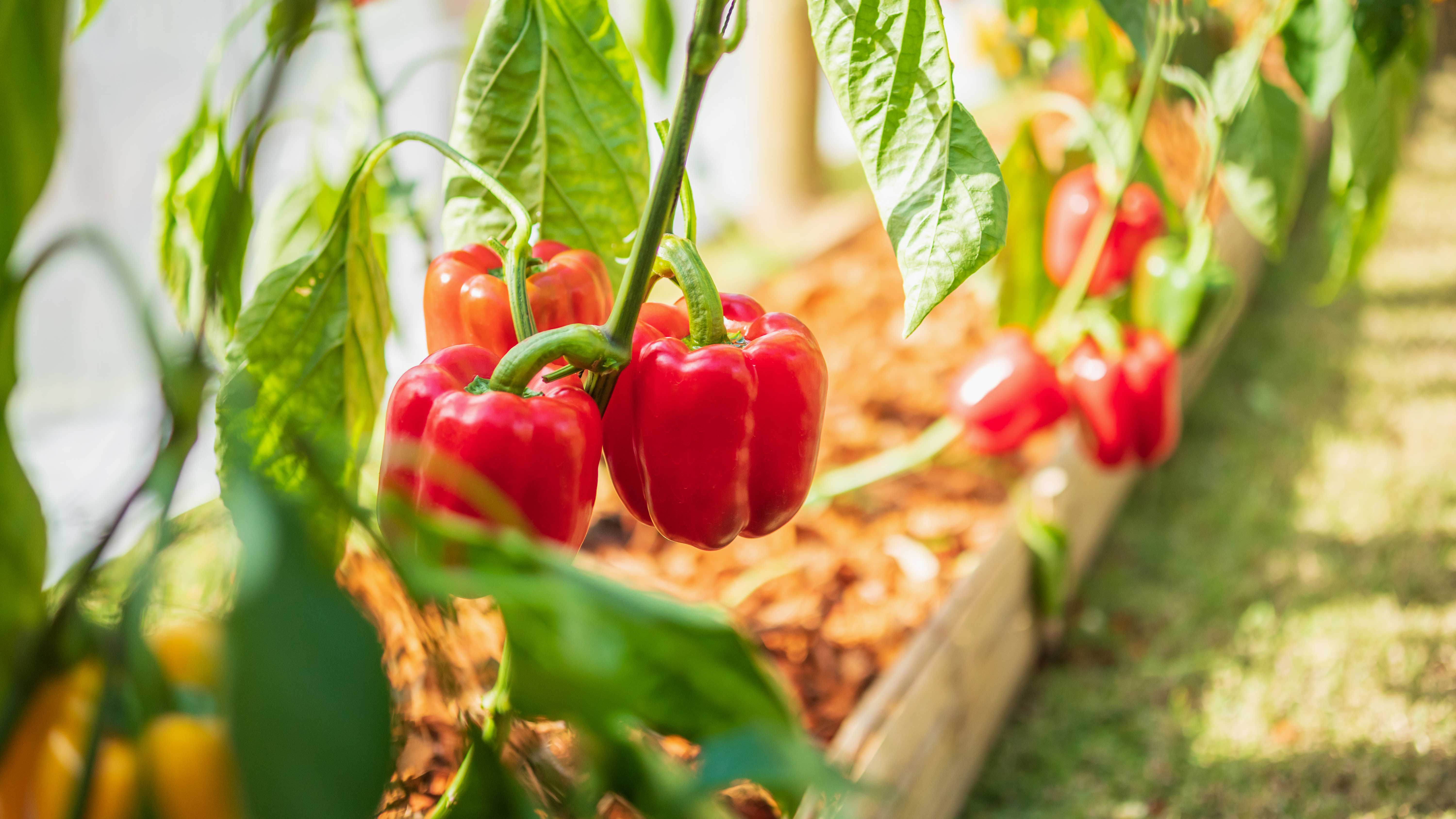
Design expertise in your inbox – from inspiring decorating ideas and beautiful celebrity homes to practical gardening advice and shopping round-ups.
You are now subscribed
Your newsletter sign-up was successful
Want to add more newsletters?

Twice a week
Homes&Gardens
The ultimate interior design resource from the world's leading experts - discover inspiring decorating ideas, color scheming know-how, garden inspiration and shopping expertise.

Once a week
In The Loop from Next In Design
Members of the Next in Design Circle will receive In the Loop, our weekly email filled with trade news, names to know and spotlight moments. Together we’re building a brighter design future.

Twice a week
Cucina
Whether you’re passionate about hosting exquisite dinners, experimenting with culinary trends, or perfecting your kitchen's design with timeless elegance and innovative functionality, this newsletter is here to inspire
By choosing the best pepper companion planting combinations you will increase your chances of enjoying the biggest and tastiest homegrown crop of this popular vegetable.
Companion planting is an age-old method for getting the most out of your vegetable plot. Although the science doesn’t always agree, many gardeners swear by it to deter pests and get the best harvest possible from their plants as part of their vegetable garden ideas.
Pepper companion planting is a useful method when learning how to grow bell peppers, as well as jalapeño peppers, whether you live in a hardiness zone where they can be grown outdoors, or are growing them under cover as part of your food to grow in a greenhouse.
Pepper companion planting
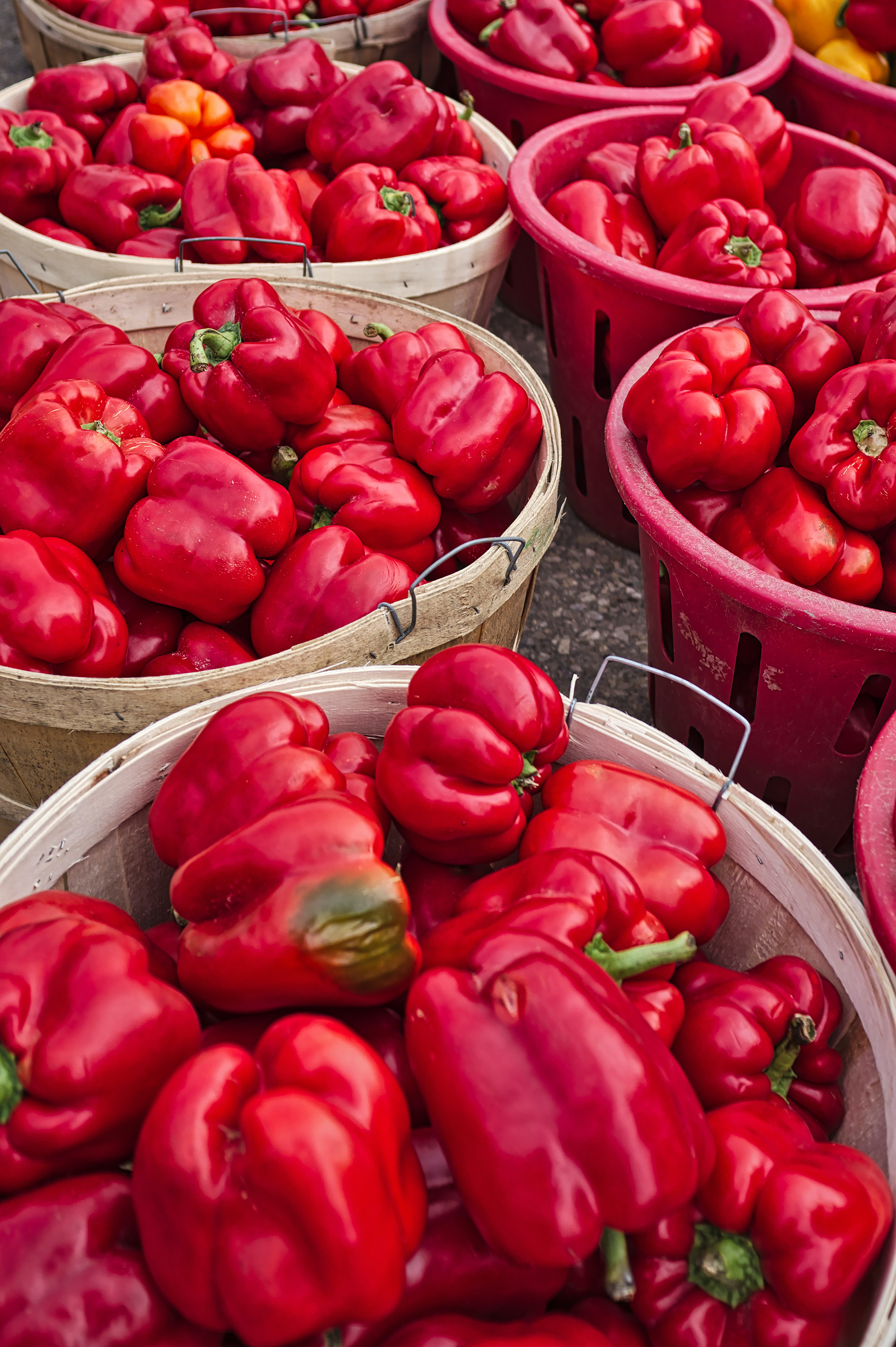
'Pepper companion planting can be an organic way to protect your crops from pests or it could help improve pollination of fruit and vegetable crops,' says Sue Sanderson, horticultural executive at Thompson & Morgan. It is a recommended practice for those interested in permaculture gardening and can help you on your way to creating a sustainable garden with less need for manmade pest controls.
When it comes to companion planting peppers, you have two things to think about. First, what sort of pepper are you planting – is it a sweet bell pepper or a spicy jalapeño? Each of these will offer different benefits and pest fighting qualities to different companions – so it's important to bear this in mind when planning a kitchen garden.
Second, it is key to consider the climate. In some regions, peppers can be planted outside but for the majority of places, pepper plants will need to be grown under glass when you are planning a greenhouse to mimic the temperatures they would enjoy in the hot climates from which they originate, or as vegetable garden container ideas so they can be grown in the sunniest and warmest spots. It is therefore vital that any companion plants will thrive in the same hotter conditions, so pick your plants and plan when to plant vegetables with this in mind.
Pepper companion planting – with vegetables
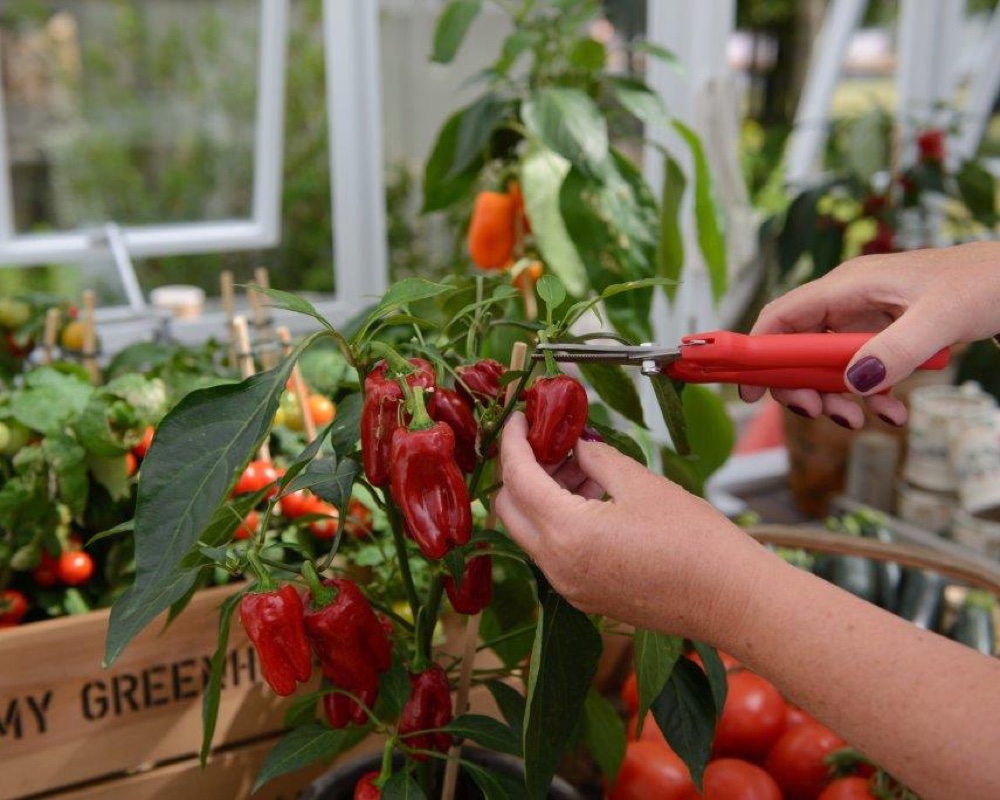
There are many vegetables that make good pepper companion plants.
Design expertise in your inbox – from inspiring decorating ideas and beautiful celebrity homes to practical gardening advice and shopping round-ups.
Whatever plants you choose, 'make sure not to plant them too close to your peppers so that the companions don't shade them, as peppers like sun,' says Idelle Fisher, garden blogger at Sandia Seed.
Growing beets is a common choice when pepper companion planting. This pairing is particularly recommended if you are growing your peppers outdoors and don't want to use up valuable greenhouse space on hardy veg. The root vegetable helps to prevent weeds, while its low-level leaves help to keep the soil shaded, reducing evaporation. This creates a cool and moist environment in which the peppers can then thrive.
If you know how to grow carrots you'll be aware they grow deep in the soil with minimal foliage above the ground. Pepper companion planting therefore works well as it disturbs the soil, helping to control weeds. The carrots also provide a living mulch that improves the growth of the pepper.
If you are growing aubergines, or eggplant, they require the same growing conditions as peppers, so thrive when planted together. Rob Velseboer from Organic Edible Garden recommends 'companion planting peppers and chillis with eggplants for biodiversity, pairing with nasturtium and marigolds in and around them to attract beneficial insects.'
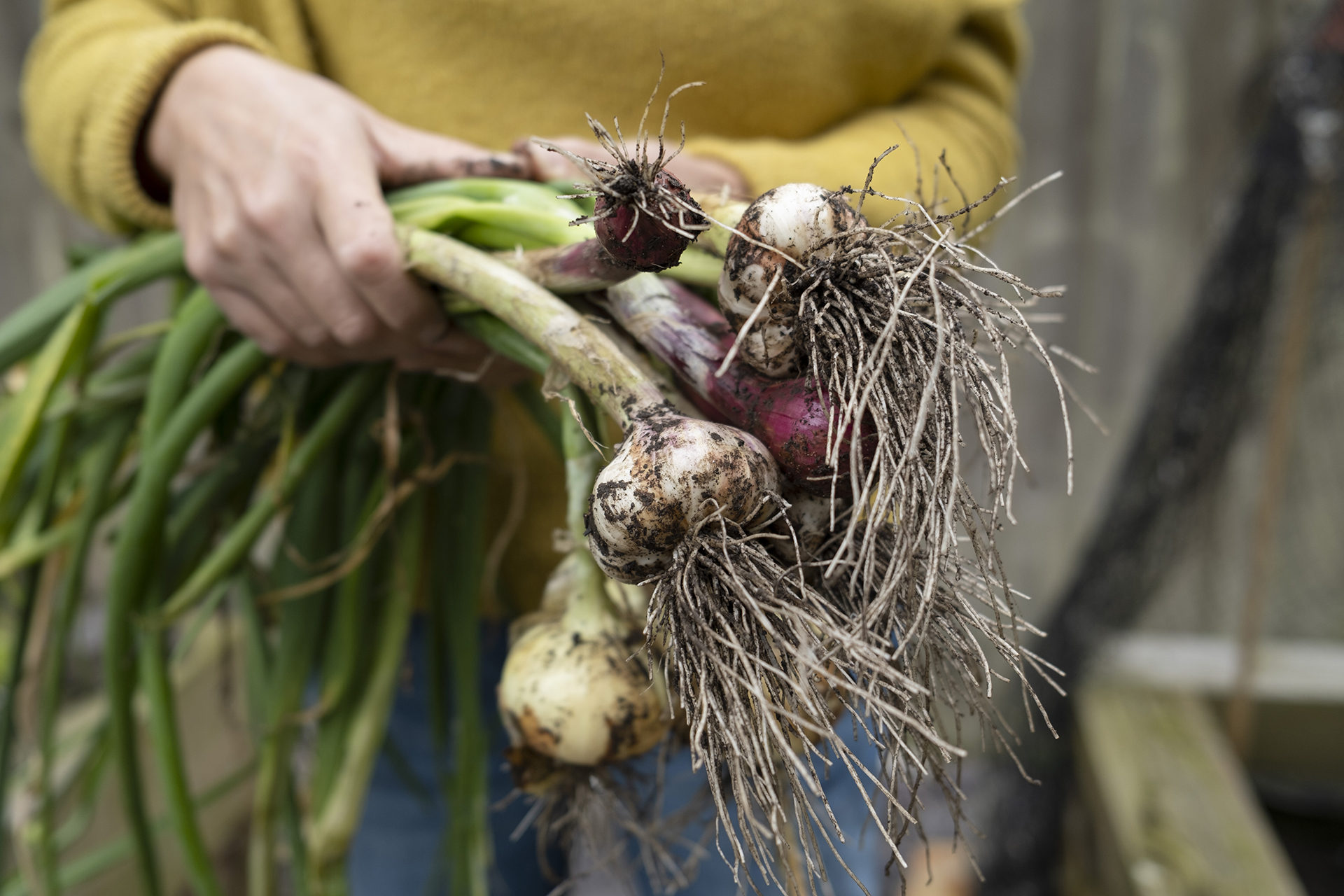
Onions don’t take up much room which is at a premium when it comes to pepper companion planting. 'Their strong smell means that they naturally deter aphids, rabbits and other pests – plus when harvested, they taste great with peppers,' says Sandia Seed's Idelle Fisher. This makes peppers good for onion companion planting.
For small vegetable garden ideas, growing asparagus is a great for saving space when pepper companion planting. When the peppers are small they do not compete with the asparagus, then once the asparagus is harvested in the spring, the growing peppers can commandeer the space. That's two crops for the price of one.
Dwarf French beans are highly beneficial as pepper companion plants. 'Planting dwarf French beans in front of peppers in a greenhouse will fix nitrogen into the soil and feed the peppers, giving better harvests' says Rob Smith horticultural expert at Organic Garden Catalogue.
Spinach and lettuce are great for pepper companion planting as they're low growing. This means they don't shade peppers, letting them enjoy most of the sunshine, but will also provide ground cover and keep out weeds that will compete with the peppers for nutrients.
Pepper companion planting – with herbs
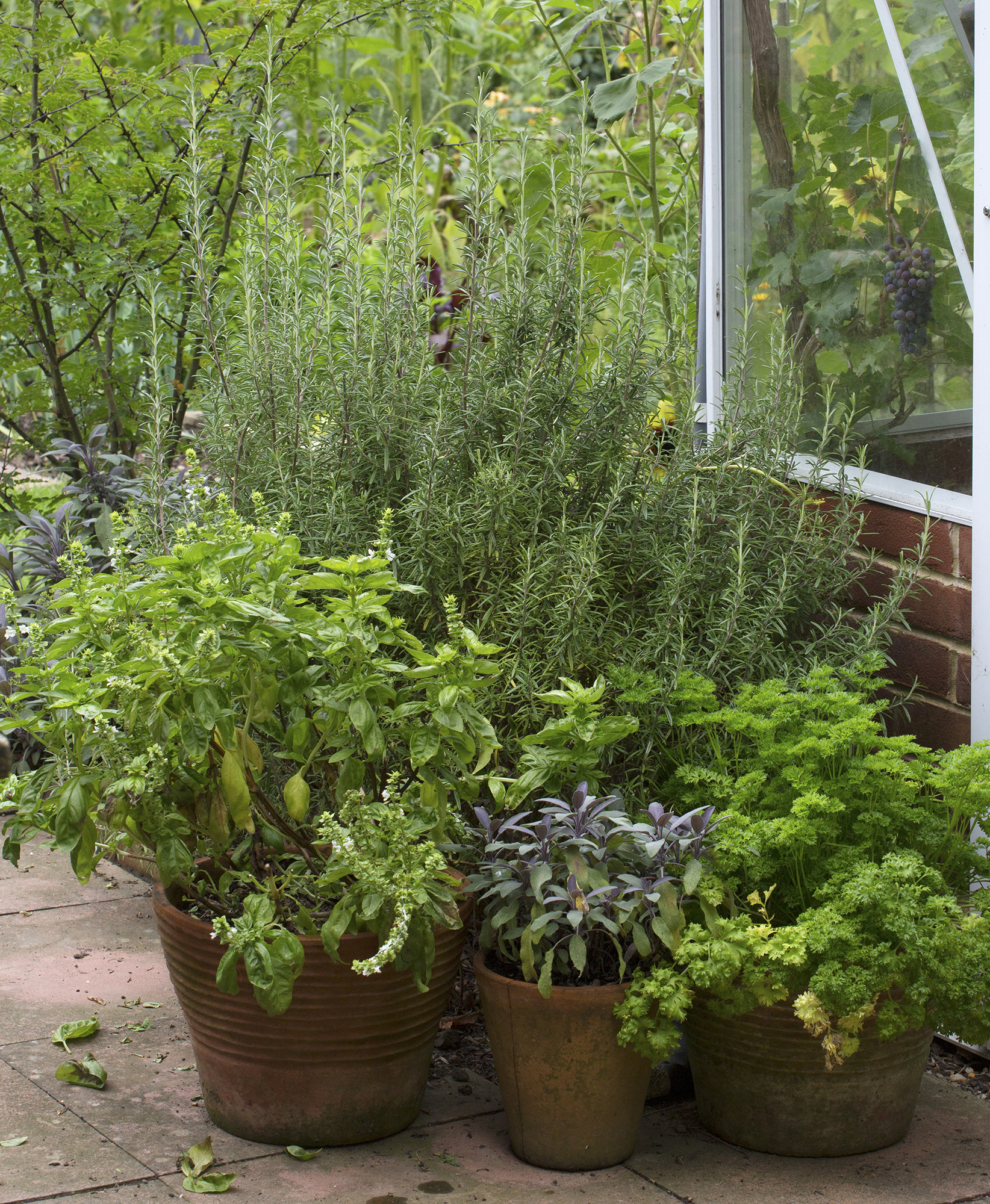
Just like with vegetables, there are lots of herbs that are great pepper companion plants.
Basil is a favorite pick. 'In Crete, every veg patch is packed with basil, yet they hardly eat it; gardeners there are convinced that basil ups the productivity of aubergines and peppers so they leave it where it is,' says expert plantswoman Sarah Raven . Growing basil with peppers is easy to replicate in your own garden.
'It's worth remembering that basil is not a Mediterranean herb,' says Monty Don in this Gardener's World video, 'so it likes heat and moisture'. Thankfully, these conditions are very similar to those which enable peppers to flourish, making them great companions. Planting peppers with basil has also been reported to improve the flavor of the peppers come harvest.
Dill is another popular choice for pepper companion planting as it will 'attract beneficial insects,' says Rob Smith.
When planting peppers with herbs, think about next year, too. 'Let some of them bloom as plants for pollinators to feed the native bees and beneficial insects, then you can save the seed for replanting,' advises Idelle Fisher.
Pepper companion planting – with flowers
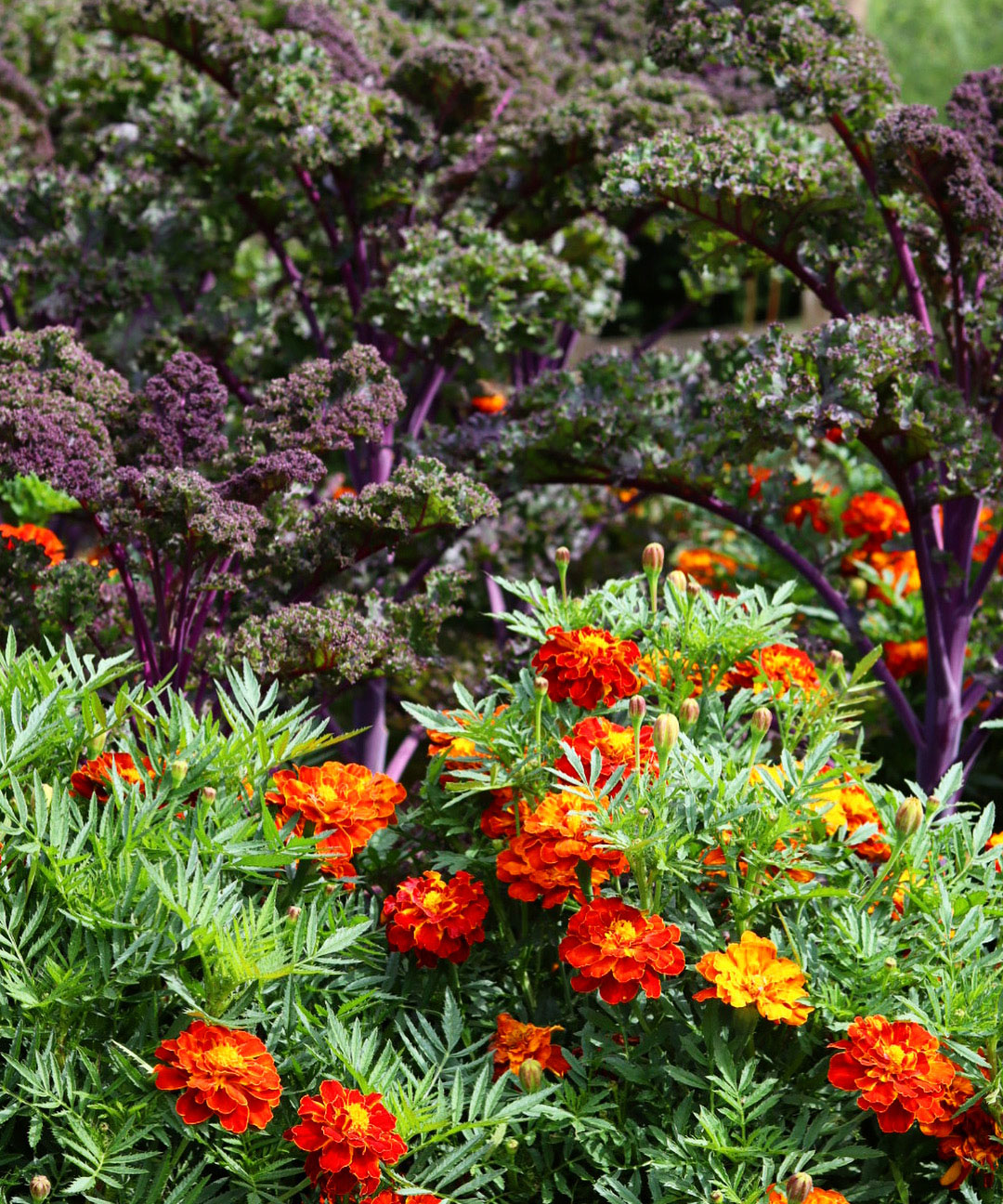
Various flowers, as well as looking beautiful, have benefits for pepper companion planting.
Mountain marigold or Tagetes lemmonii is organic gardening expert Jekka McVicar of Jekka's Herb Farm top companion plant for peppers as it 'will attract the white fly in the glasshouse to itself, keeping other plants clean'. These are known as sacrificial plants and using trap plants for pest control can be very effective.
Petunias, which are among the best fly repellant plants, make great pepper companion plants. Not only do petunias add a splash of color to the hardest working area of the garden or greenhouse, but they also repel pests, like aphids, as well as attracting pollinators such as bees and hoverflies to your crops.
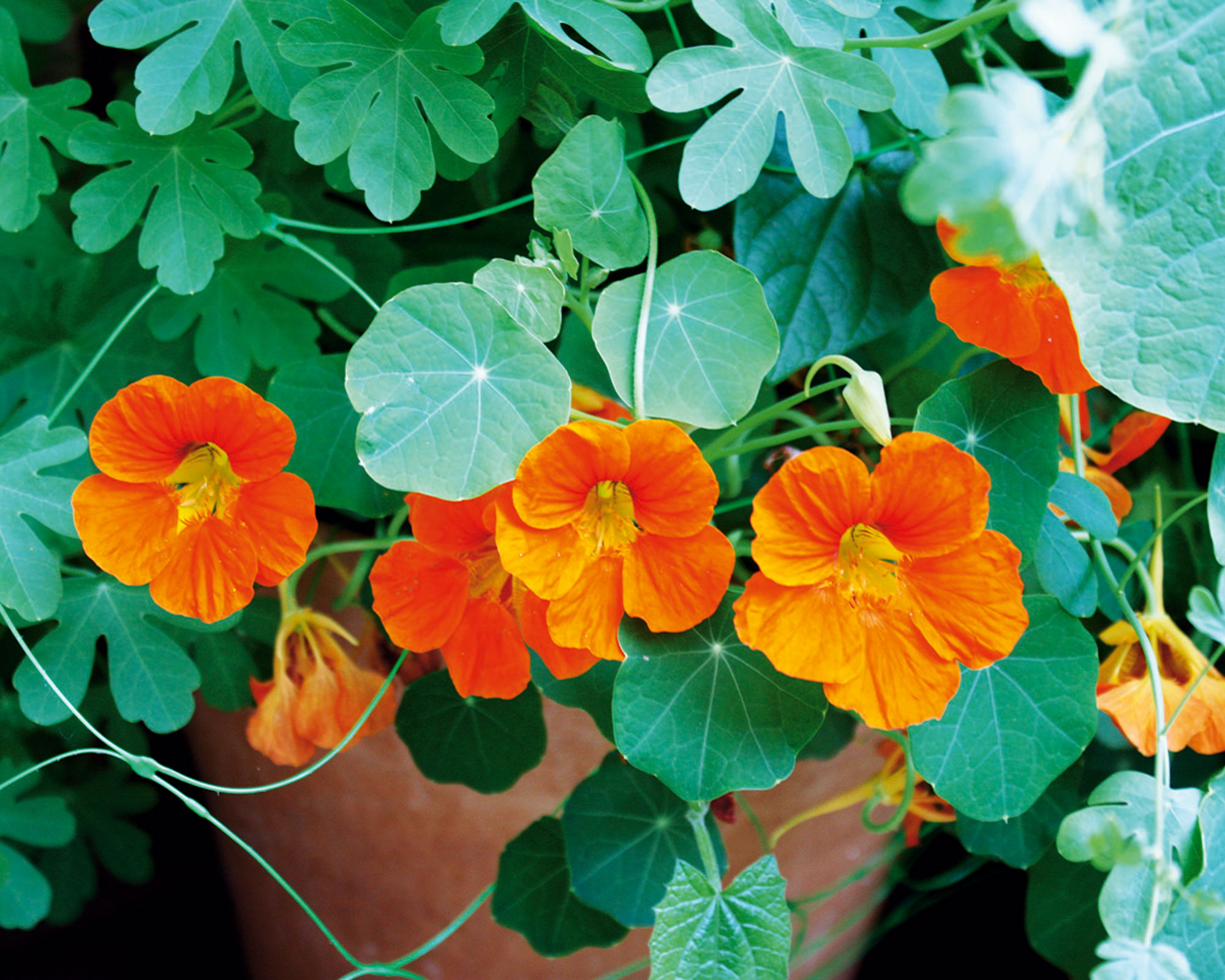
Growing nasturtiums for pepper companion planting is a great choice, as the flowers act as a trap plant, luring aphids to feast on them rather than your precious peppers.
Geraniums are another trap crop and are also believed to repel Japanese beetles, which when companion planted with peppers helps to protect your crop, too. An added bonus is they are among the best wasp repellant plants – particularly useful if your peppers are planted in a greenhouse.
Jalapeno pepper companion planting
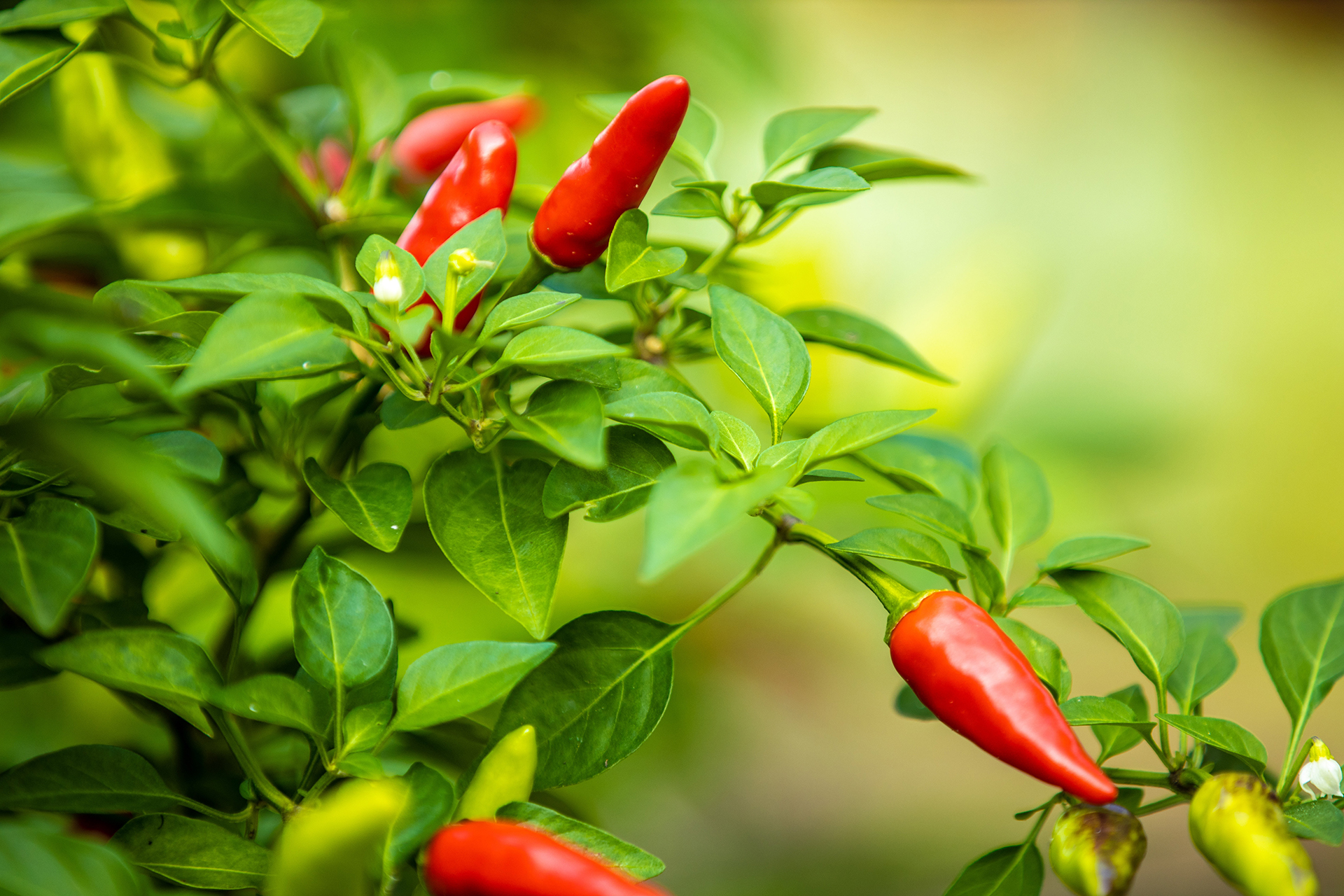
If you're specifically wondering 'what can I plant next to jalapeño peppers?' then there are lots of options, and many of those that make good companions for bell or sweet peppers, are also good for jalapeños.
Vegetable crops to grow alongside jalapeños include beans, peas, carrots and cucumbers. And therefore in reverse, peppers make good cucumber companion plants, and companions for the rest.
You can plant basil next to jalapeño peppers, which supposedly improves their flavor, as well as other herbs including marjoram, chives, parsley and dill.
Chamomile and marigolds help to deter pests, and have the added benefit of being plants for pollinators.
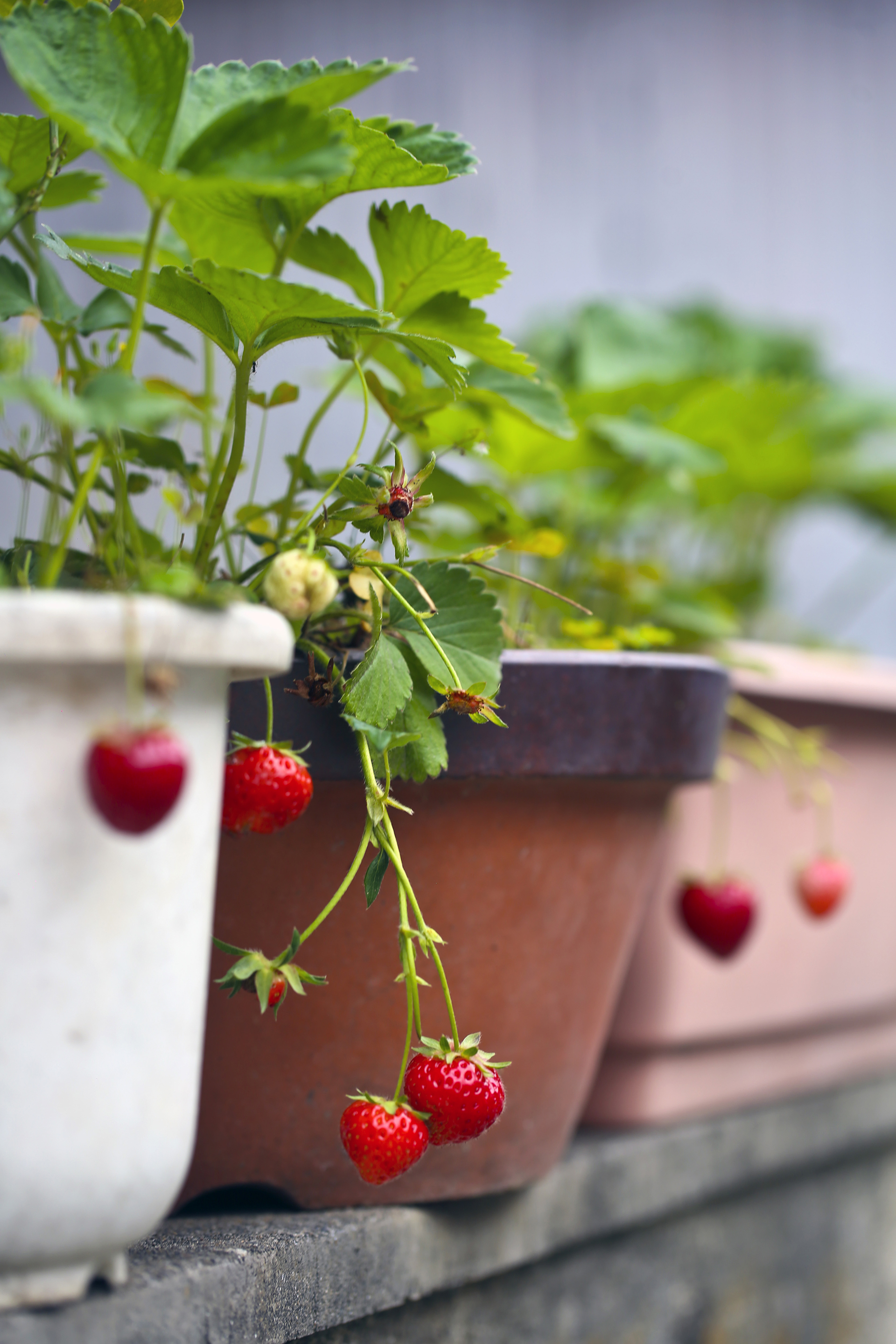
What can you not plant next to peppers?
There are various plants that you can not plant next to peppers – or at least it is advised that you do not for various reasons.
Fennel – 'Florence fennel is allelopathic to other plants, which means it gives off a chemical that inhibits the growth of neighboring vegetables,' says Thomas Asche, editor of the Organic Edible Garden. 'When growing fennel, 'we recommend giving the crop a buffer zone of flowers on either side – low-growing varieties though so they don’t shade the plants.'
Strawberries are susceptible to a fungus called verticillium which will cause the strawberries to wilt and fail. 'Do not plant susceptible strawberry cultivars in soil where peppers, as well as other plants, have grown for the past five years.' says Michael A. Ellis from the Department of Plant Pathology at Ohio University. These plants can encourage verticillium which will destroy strawberries. Practising crop rotation can help avoid soil borne diseases.
Apricot trees, although among the best fruit trees to grow, should never be companion planted with peppers as apricots are susceptible to diseases that pass from peppers. These diseases can stunt the apricot tree's growth, reduce its fruit and ultimately kill the tree.
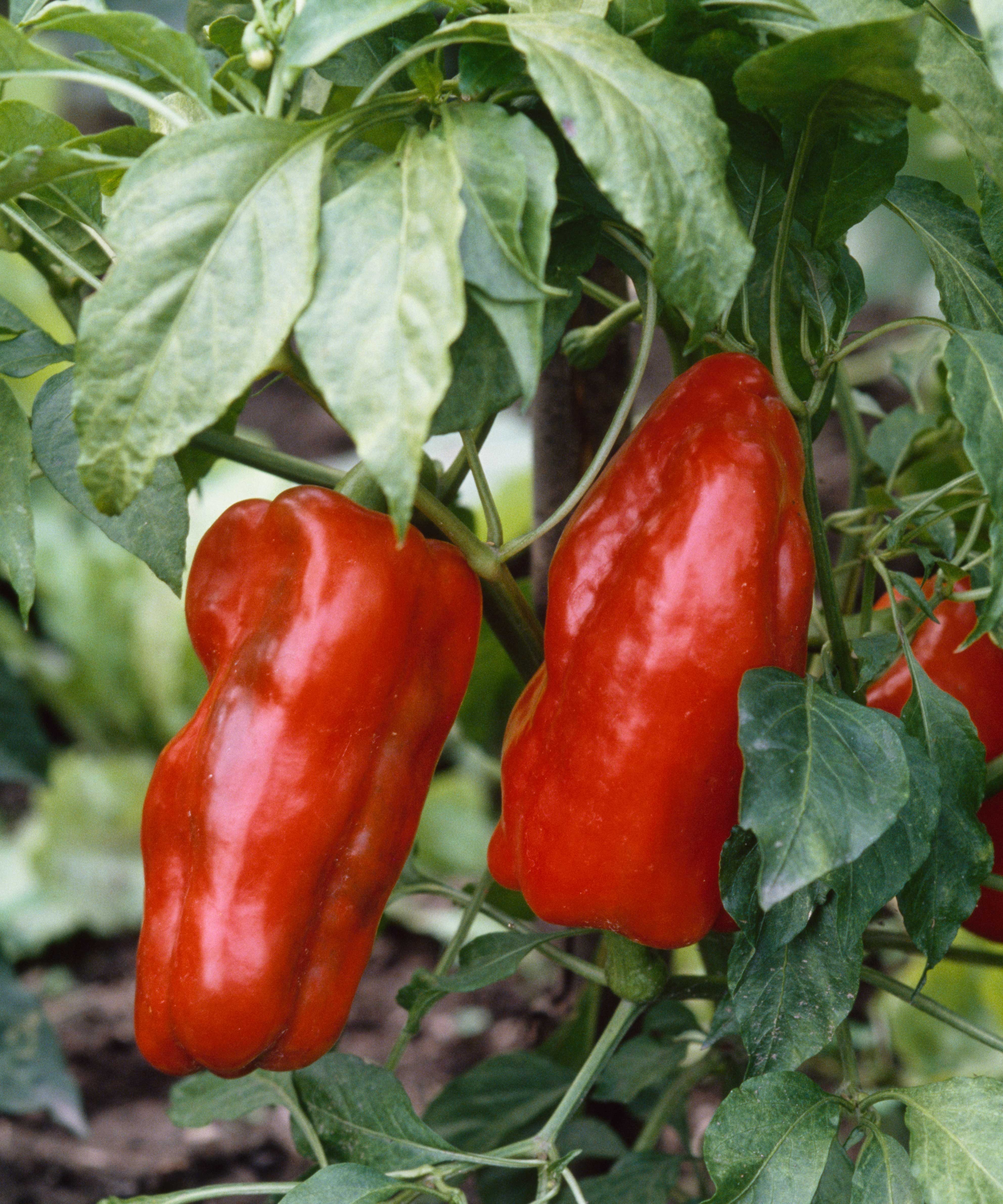
Can you plant two pepper plants together?
Yes two peppers can be planted together – in fact, planting peppers with other peppers will still produce very successful harvests. However, since they are self-pollinating you don't necessarily need more than one plant if you're short of space. Peppers can also be planted with chilli jalapeño peppers.
'Peppers should be spaced at 12-18inch between plants, stem to stem. For larger varieties, more space may be beneficial for easy access while harvesting,' advises Calvin and Crystalyn of Pepper Geek.
Peppers need room to grow and produce a good crop, so ensure you leave enough space between plants.
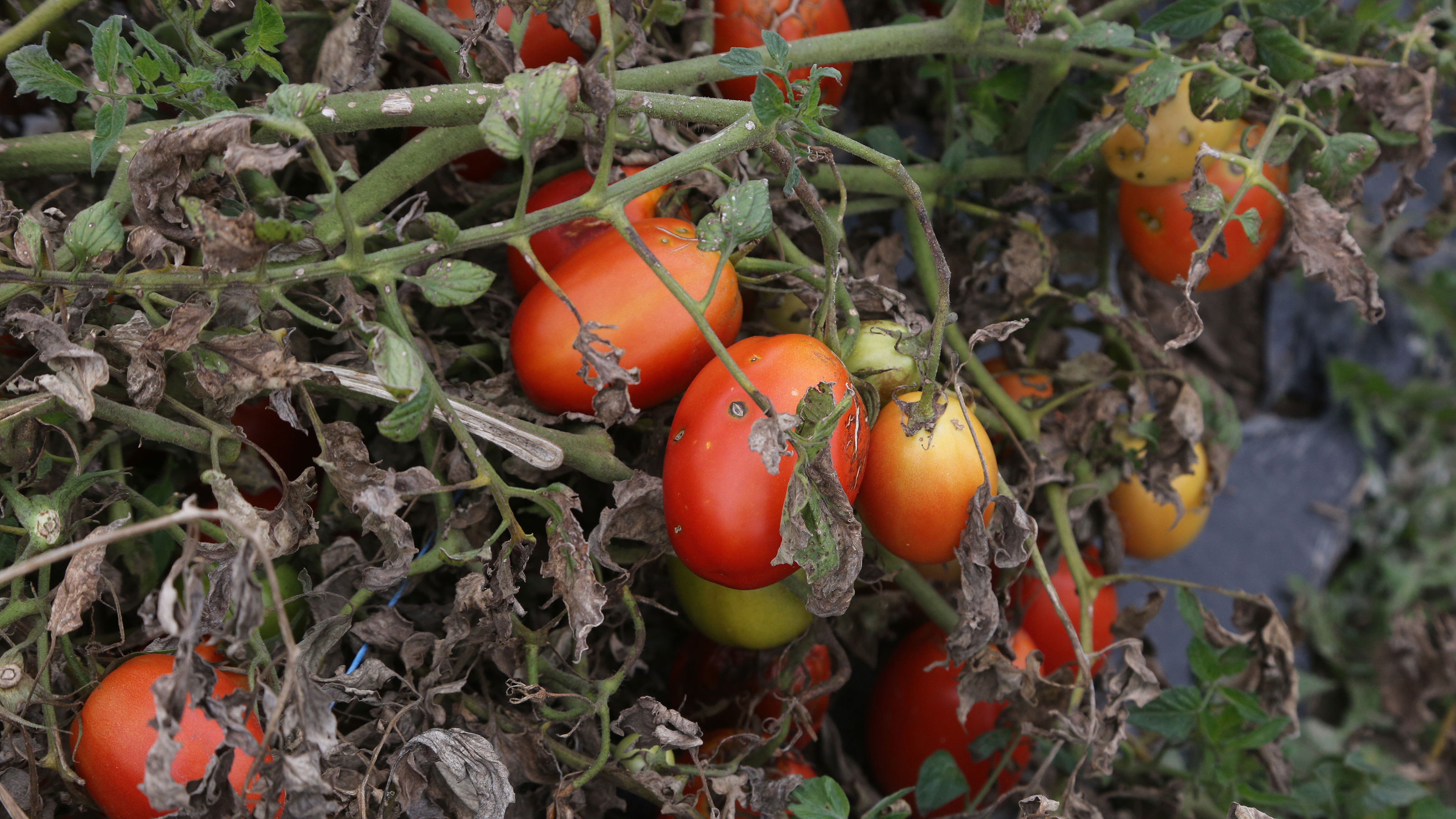
Can pepper plants be planted next to tomatoes?
While you can grow pepper plants next to tomatoes, they don't make the best tomato companion plants. It's important to bear in mind that growing plant members of the Nightshade or Solacaceae families together can increase the risk that disease will spread among them, especially if they are grown in the same bed after each other.
So, if you have little space, plant them together, allowing the peppers to enjoy the dappled humidity and shade that peppers can offer them, and both to enjoy the similar growing conditions, then rotate next season.
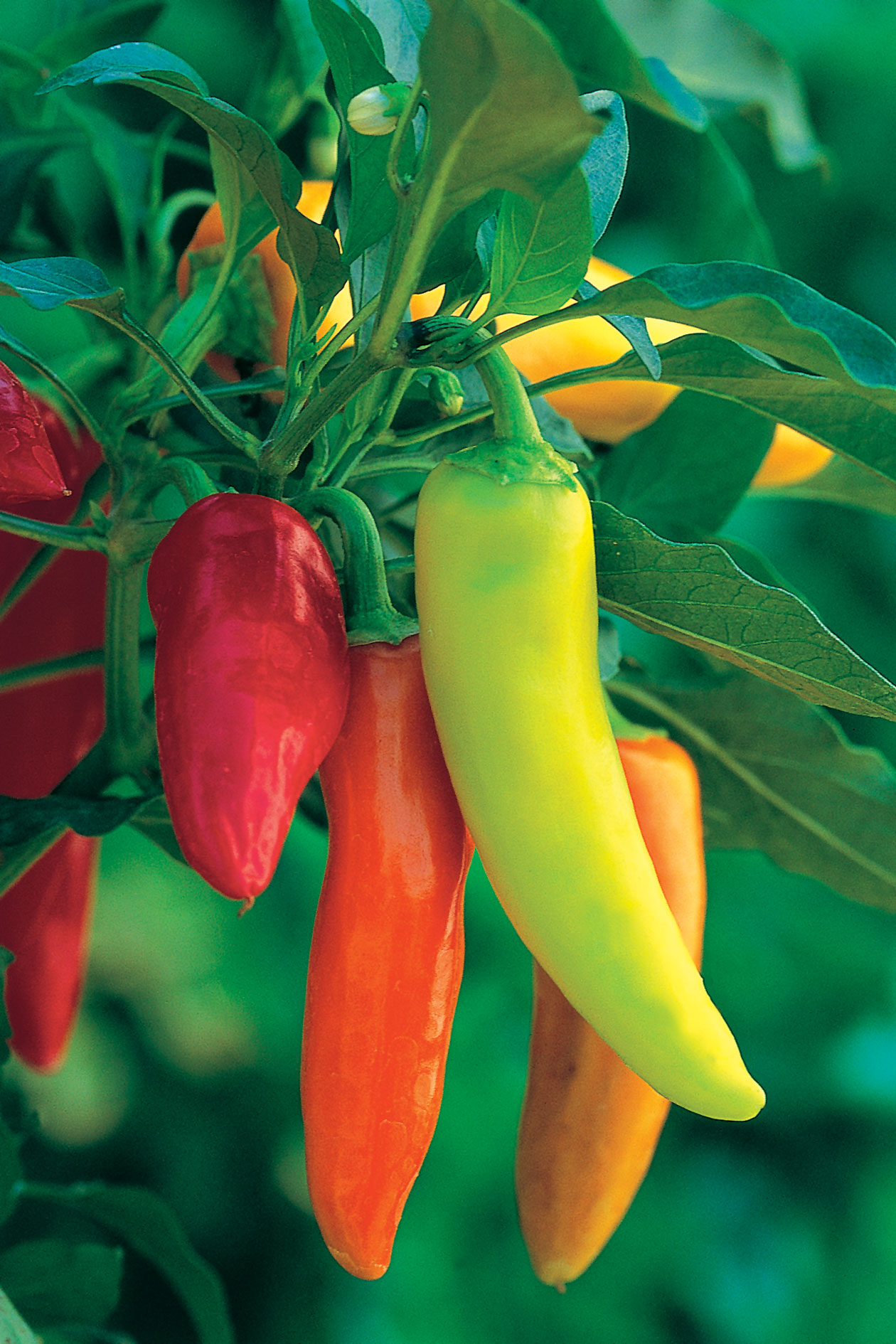
Can you plant bell peppers and jalapeños together?
You can plant jalapeño peppers next to bell peppers or sweet peppers, as they both thrive in similar warm environments.
Companion planting peppers next to jalapeños will also make both plants easier to look after since they need nearly identical care. This will reduce your workload while increasing your harvest.
However, if you intend on collecting the seed, try covering the blossoms with a mesh cloth bag. This is because peppers are very good at cross-pollinating and you may find you end up with hybrid seeds if you don’t keep them separate.
Why not plant beans next to peppers?
While experts disagree on whether beans are good for pepper companion planting, Calvin and Crystalyn from Pepper Geeks reassure that, 'although there are arguments for and against growing green beans nearby peppers, we have never had issues with the combination.
Green beans prefer neutral soil, while peppers prefer slightly acidic soil. However, the green beans will tolerate pH levels down to 5.5 and grow just fine. If you are tight on space, and want to grow both peppers and green beans, you likely won’t have any problems,' they add.

Having graduated with a first class degree in English Literature, Holly started her career as a features writer and sub-editor at Period Living magazine, Homes & Gardens' sister title. Working on Period Living brought with it insight into the complexities of owning and caring for period homes, from interior decorating through to choosing the right windows and the challenges of extending. This has led to a passion for traditional interiors, particularly the country-look. Writing for the Homes & Gardens website as a content editor, alongside regular features for Period Living and Country Homes & Interiors magazines, has enabled her to broaden her writing to incorporate her interests in gardening, wildlife and nature.